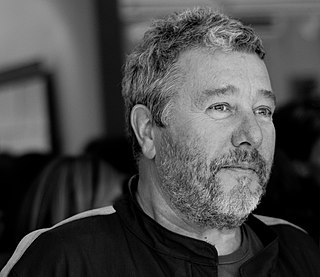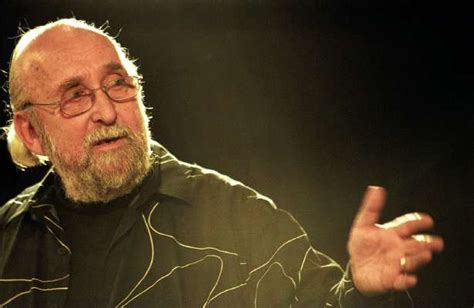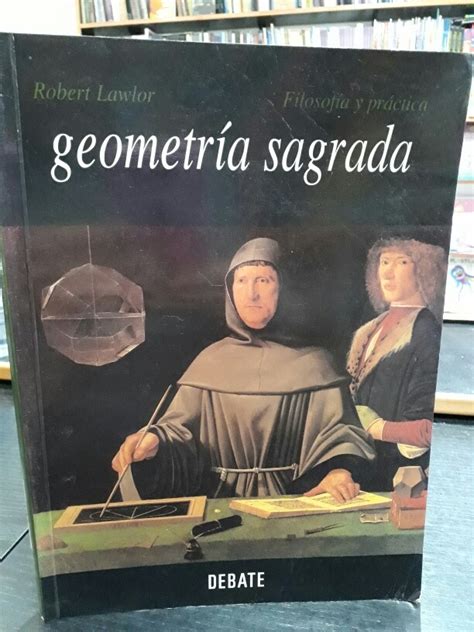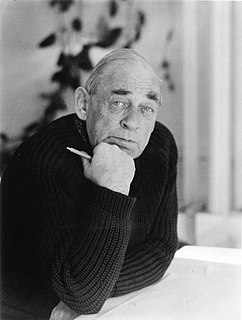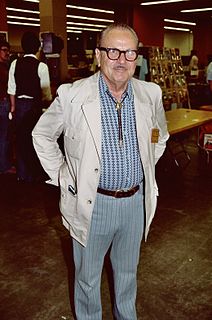A Quote by Salvatore Quasimodo
The poet's other readers are the ancient poets, who look upon the freshly written pages from an incorruptible distance. Their poetic forms are permanent, and it is difficult to create new forms which can approach them.
Related Quotes
In our civilization, there are permanent forms which are part of every epoch and every culture. They are not especially difficult to detect. A minimal knowledge of physics, astrophysics, and perhaps mathematics, brings to light certain patterns that make these subjects easier to understand. It is striking to see the extreme similarity between these scientific propositions and the forms that recur in all times, places and civilizations.
Sexuality is a part of our behavior. It's part of our world freedom. Sexuality is something that we ourselves create. It is our own creation, and much more than the discovery of a secret side of our desire. We have to understand that with our desires go new forms of relationships, new forms of love, new forms of creation. Sex is not a fatality; it's a possibility for creative life. It's not enough to affirm that we are gay but we must also create a gay life.
I'm saying that the domain of poetry includes both oral & written forms, that poetry goes back to a pre-literate situation & would survive a post-literate situation, that human speech is a near-endless source of poetic forms, that there has always been more oral than written poetry, & that we can no longer pretend to a knowledge of poetry if we deny its oral dimension.
I certainly was surprised to be named Poet Laureate of this far-out city on the left side of the world, and I gratefully accept, for as I told the Mayor, "How could I refuse?" I'd rather be Poet Laureate of San Francisco than anywhere because this city has always been a poetic center, a frontier for free poetic life, with perhaps more poets and more poetry readers than any city in the world.
One of the surest tests of the superiority or inferiority of a poet is the way in which a poet borrows. Immature poets imitate mature poets steal bad poets deface what they take and good poets make it into something better or at least something different. The good poet welds his theft into a whole of feeling which is unique utterly different than that from which it is torn the bad poet throws it into something which has no cohesion. A good poet will usually borrow from authors remote in time or alien in language or diverse in interest.
Within the human consciousness is the unique ability to perceive the transparency between absolute, permanent relationships, contained in the insubstantial forms of a geometric order, and the transitory, changing forms of our actual world. The content of our experience results from an immaterial, abstract, geometric architecture which is composed of harmonic waves of energy, nodes of relationality, melodic forms springing forth from the eternal realm of geometric proportion.
Some years ago I was working on some forms which were vase forms with a fairly narrow base, and it was after [Hans] Coper had died that I saw an exhibition of his, a catalogue from an exhibition, and he was showing some forms which were made by cutting and joining a lot of different parts together to create what he called a spade form, which you can imagine looks a little bit like a shovel upside down.
So we find that in almost every religion these are the three primary things which we have in the worship of God - forms or symbols, names, God-men. All religions have these, but you find that they want to fight with each other...These are the external forms of devotion, through which man has to pass; but if he is sincere, if he really wants to reach the truth, he goes higher than these, to a plane where forms are as nothing.



